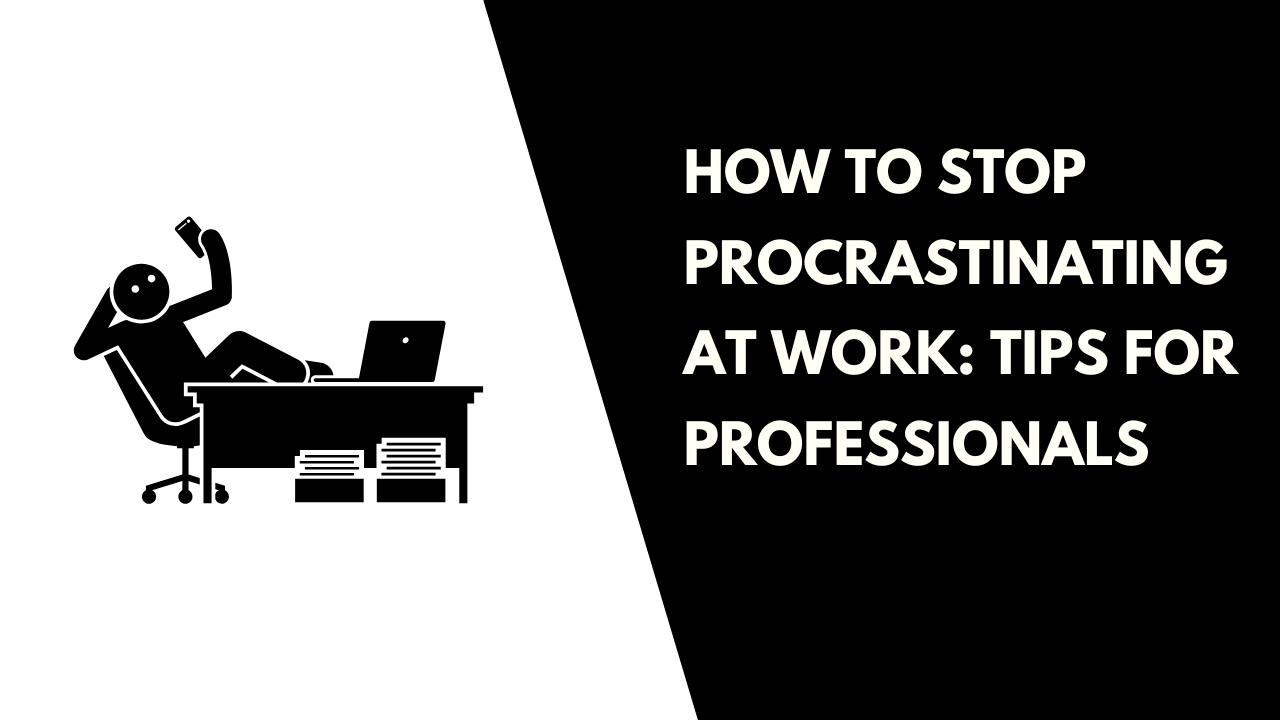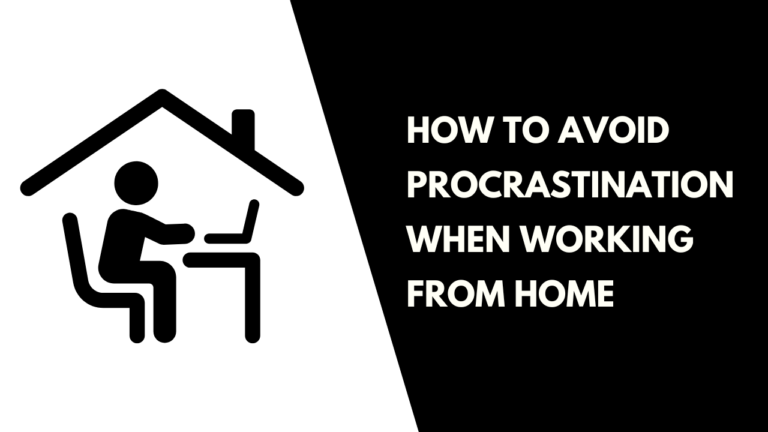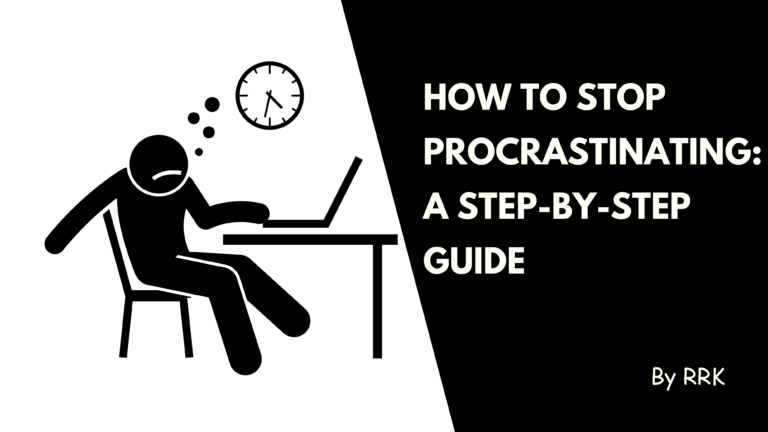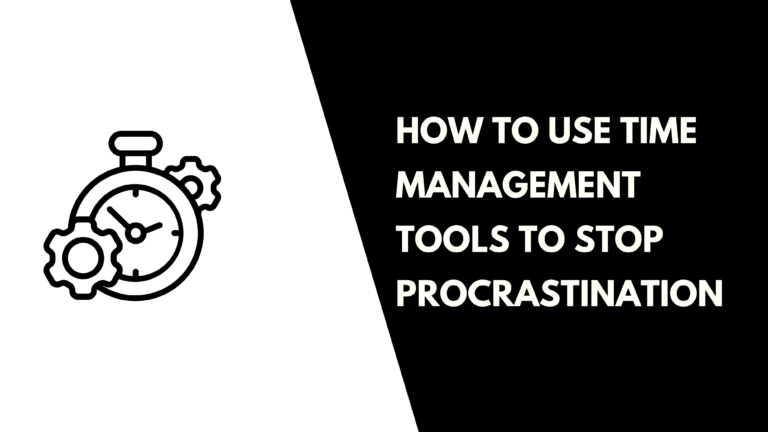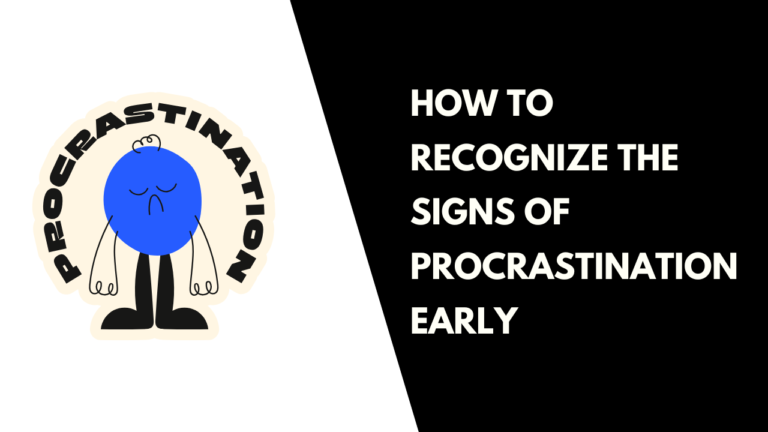How to Stop Procrastinating at Work: Tips for Professionals
How to Stop Procrastinating at Work: Tips for Professionals
We’ve all been there—staring at an important task, knowing we should start, but somehow finding ourselves checking emails, scrolling social media, or making yet another cup of coffee. Procrastination at work isn’t just about laziness; it’s a psychological challenge that professionals across all industries struggle with.
Table of Contents
ToggleBut here’s the good news: You can Stop Procrastinating at Work and take back control of your productivity! In this blog, we’ll explore why we procrastinate at work, how it impacts our careers, and actionable strategies to Manage Procrastination effectively.
Why Do Professionals Procrastinate at Work?
Before we tackle solutions, let’s first understand why we delay tasks:
- Task Overwhelm: The project seems too big or complicated, making it hard to start.
- Perfectionism: You wait for the “perfect” moment or feel the need to make everything flawless.
- Fear of Failure: You worry about making mistakes or not meeting expectations.
- Lack of Motivation: The task feels boring or unimportant, making it difficult to focus.
- Distractions: Social media, emails, or chatty colleagues keep pulling you away.
- Poor Time Management: You underestimate the time required or overcommit to multiple tasks.
Understanding these triggers is the first step to overcoming them!
The Cost of Procrastination at Work
Many professionals think a little delay won’t hurt. But chronic procrastination can have serious consequences:
✅ Missed Deadlines: Constant delays can harm your credibility and professional reputation.
✅ Increased Stress: Last-minute work leads to rushed decisions, errors, and unnecessary anxiety.
✅ Reduced Productivity: Small delays add up, affecting overall performance.
✅ Stagnant Career Growth: Consistently failing to deliver on time may limit promotions or opportunities.
Now that we know what’s at stake, let’s dive into actionable solutions to Manage Procrastination effectively.
1. Break Big Tasks into Smaller Steps
One of the biggest reasons professionals procrastinate is feeling overwhelmed by a large task. The trick? Break it down!
✅ Example: Suppose you need to create a 20-slide presentation for an important client. Instead of postponing it because it feels overwhelming, break it down like this:
- Day 1: Research the topic and outline key points.
- Day 2: Create slides 1-10.
- Day 3: Complete slides 11-20 and review the presentation.
By handling small, manageable portions, the task feels less intimidating, and progress happens steadily.
2. Use the 5-Minute Rule to Overcome Resistance
When you don’t feel like starting a task, tell yourself you’ll do it for just five minutes. Often, once you begin, you’ll naturally continue.
✅ Example: If you’ve been avoiding writing a report, set a timer for five minutes and just start. You’ll likely keep going because starting is the hardest part!
3. Set Clear Deadlines (Even for Open-Ended Tasks)
If a task has no deadline, you’re more likely to keep postponing it. Instead, set specific deadlines to hold yourself accountable.
✅ Example: If you need to complete an industry research report but don’t have a strict deadline, set one yourself: “Complete research by Wednesday, write the first draft by Friday.”
Self-imposed deadlines create a sense of urgency and help you Stop Procrastinating at Work.
4. Eliminate Workplace Distractions
Your work environment plays a huge role in productivity. If distractions are pulling you away, it’s time to make changes.
✅ Tips to Manage Procrastination:
- Turn off notifications: Social media, email pop-ups, and chat alerts break focus.
- Use noise-canceling headphones: Block out background noise if you work in an open office.
- Set focus hours: Let colleagues know when you’re unavailable to avoid interruptions.
✅ Example: If you keep checking your phone during work, use an app like Forest or Freedom to block distractions for set periods.
5. Follow the “Eat That Frog” Method
Productivity expert Brian Tracy introduced the “Eat That Frog” method—tackling your biggest, most important task first thing in the morning.
✅ Example: If writing a project proposal is your most important task but you keep postponing it, do it first thing in the morning before checking emails or attending meetings.
This prevents procrastination and ensures your most critical work gets done early.
6. Try the Pomodoro Technique for Focused Work
The Pomodoro Technique is a time management strategy designed to enhance focus and productivity by breaking work into intervals, typically 25 minutes of focused effort followed by short breaks.
- Work for 25 minutes (set a timer).
- Take a 5-minute break.
- Repeat this cycle four times, then take a longer break of 15–30 minutes.
✅ Example: If you struggle to stay focused on a spreadsheet task, set a Pomodoro timer. You’ll feel more engaged knowing a break is coming soon!
7. Manage Your Energy, Not Just Your Time
Some people are most productive in the morning, while others perform better in the afternoon or evening. Schedule tasks based on your energy levels.
✅ Example: If you’re most focused in the morning, tackle deep work (writing reports, strategy planning) then. Save meetings and admin tasks for later in the day.
Managing your energy wisely helps Stop Procrastinating at Work and ensures you get the right tasks done at the right time.
8. Use Accountability to Stay on Track
Having someone check in on your progress can boost accountability.
✅ Ways to Create Accountability:
- Tell a colleague or manager your goal.
- Use a work buddy system: Pair up with a co-worker to keep each other accountable.
- Track progress publicly: Share updates on Slack, Trello, or project management tools.
✅ Example: If you keep delaying writing a proposal, tell your manager you’ll submit a draft by Friday. The external pressure helps you follow through!
9. Reward Yourself for Completing Tasks
Motivation increases when there’s a reward attached!
✅ Example: If you complete a difficult task on time, treat yourself—take a coffee break, watch a short video, or enjoy a snack.
This makes work feel less like a burden and helps reinforce good habits.
10. Reflect and Adjust Your Approach
Finally, if you find yourself procrastinating frequently, take time to reflect:
- What’s causing the delay?
- Are your goals realistic?
- Do you need to adjust your workflow?
✅ Example: If you always put off replying to difficult emails, schedule a specific time each day for email responses to prevent avoidance.
Final Thoughts: Stop Procrastinating at Work Today!
Procrastination is common, but it doesn’t have to control your work life. By using strategies like breaking tasks down, eliminating distractions, setting deadlines, and using time management techniques, you can Manage Procrastination and take charge of your productivity.
Try these tips today and see how much more you accomplish at work!
“Stop postponing your dreams! From Delay to Done is your ultimate guide to conquering procrastination. Grab your copy today on Amazon!
